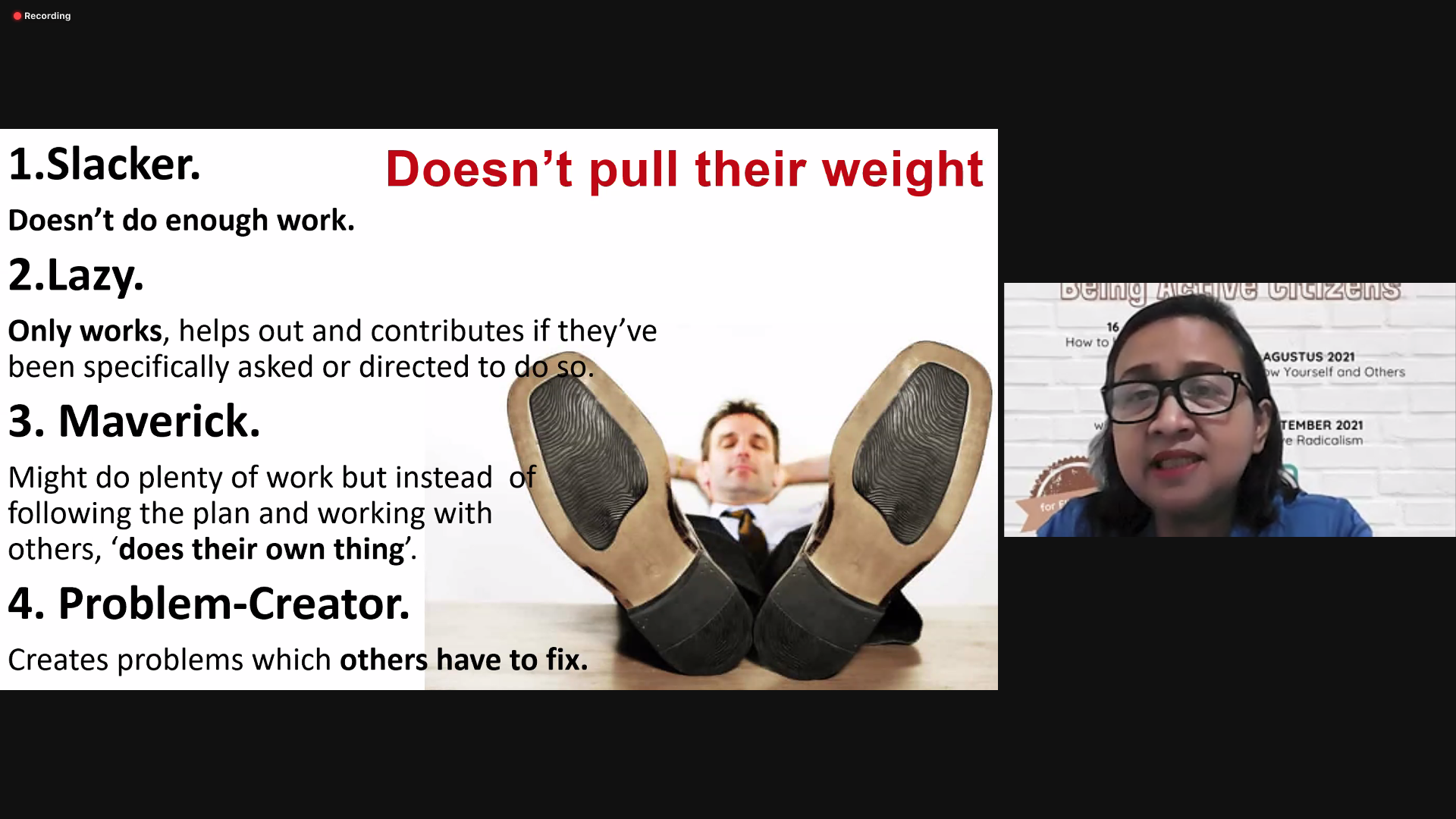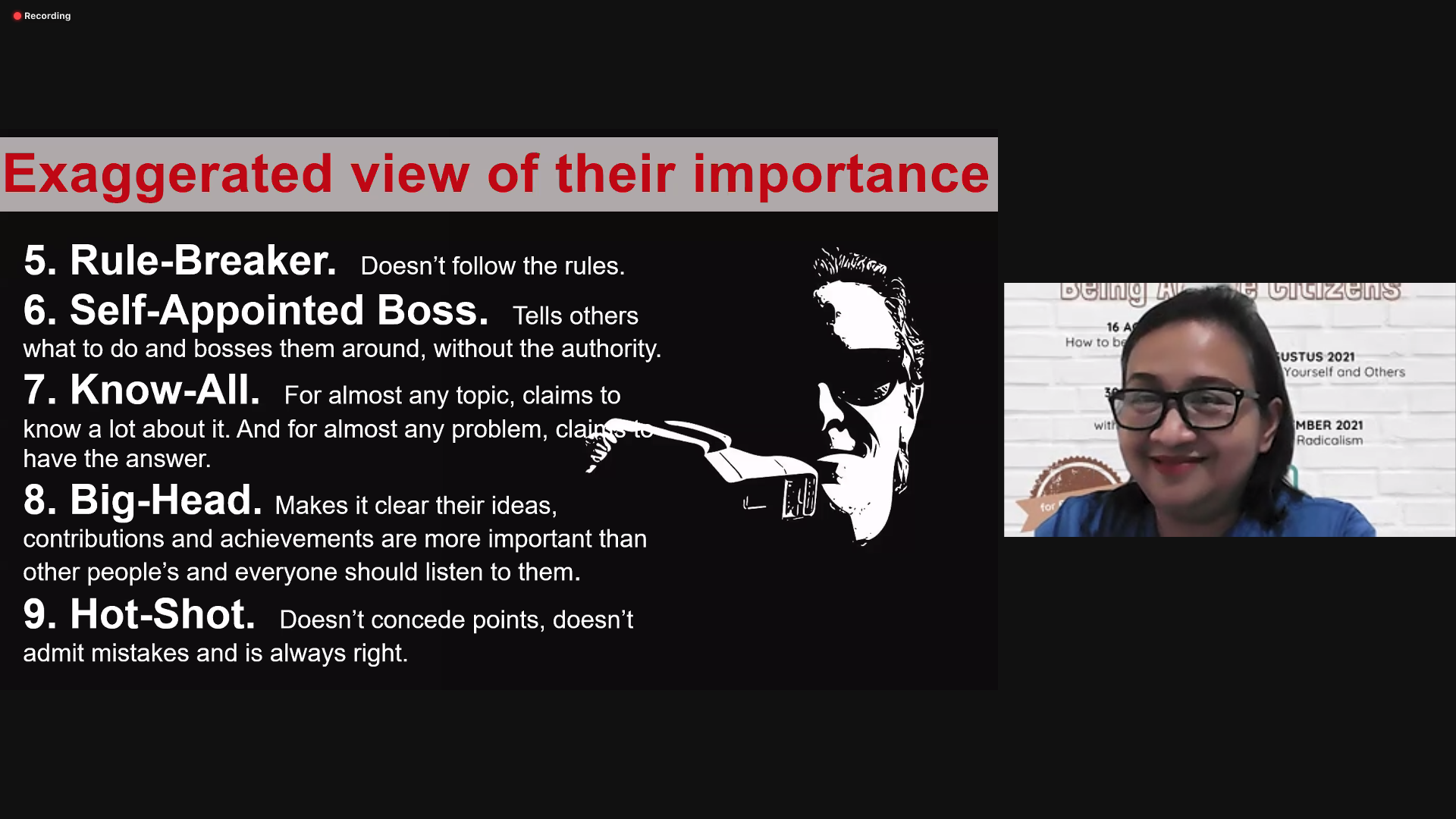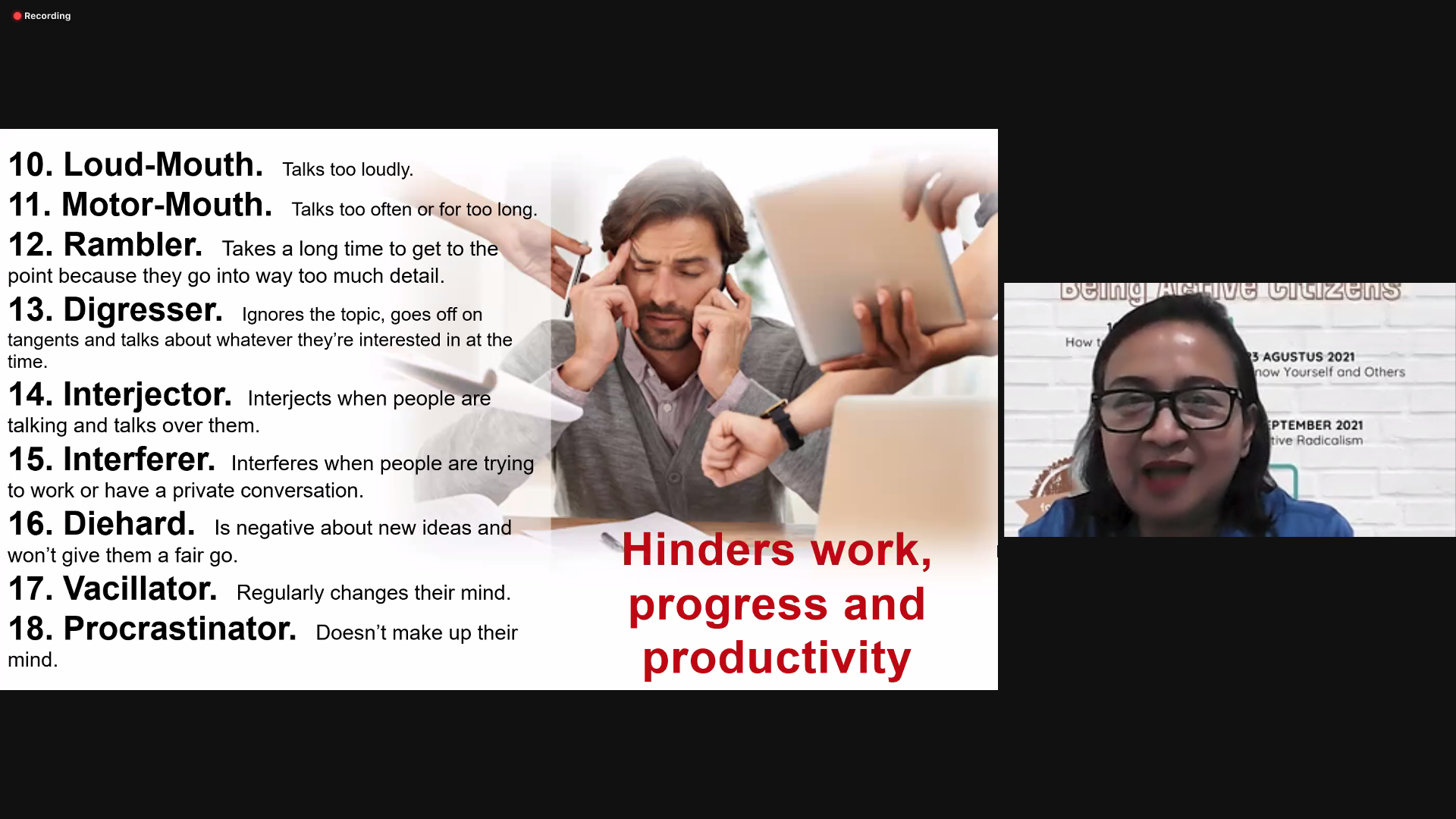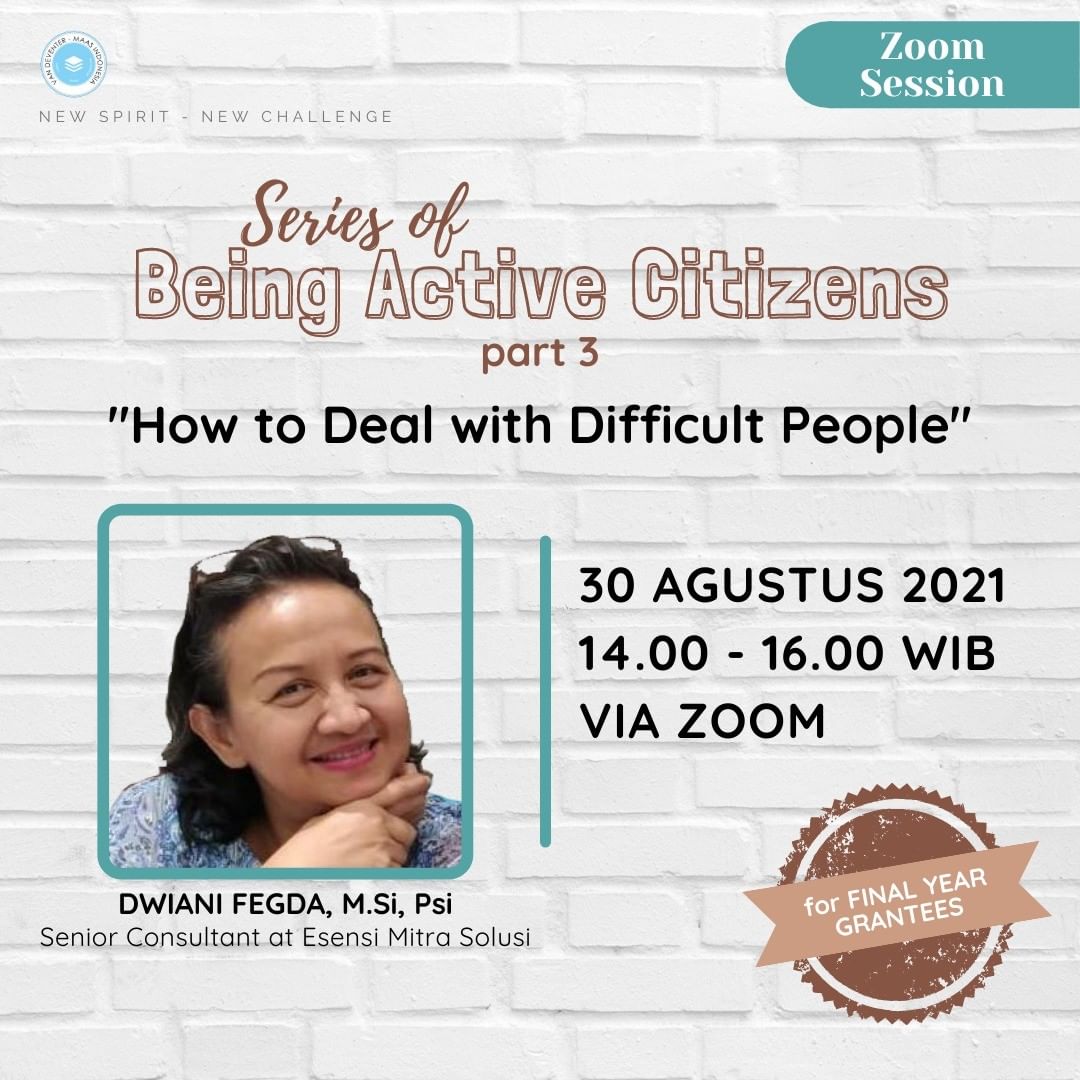Series of Being Active Citizens (Part 3): How to Deal with Difficult People
August 30th, 2021, theseries continued. Ibu Ani explained that difficult people not only display poorbehaviors; they also show no regret and repeat their poor behaviour in one formto another. Then, 52 types of difficult people categorized into sevencategories were discussed. The participants then discussed which types ofdifficult people they had ever met, what are the consequences faced by the participants, and how they deal with the difficult people.

Dealingwith difficult people can influence someone to also be a difficult person. Wecan feel overwhelmed, constantly stressed, low productivity, low self-worth, andloose enthusiasm. There are 13 characteristics of people that will makedifficult people respect them. Those are: [1] have a unique style, [2] befriendly to everyone, [3] minimize drama, [4] rasional and keep calm, [5] keepupdate news, [6] have a unique taste of every single things, [7] do ityourself, [8] never be jealous, [9] be competent in basic skills, [10] keepsecret or mysterious, [11] never talk about yourself, [12] not utilizing tearas a weapon, and [13] always humble.

Theodora Cahyarini, a grantee from Sanata Dharma University, asked, “What should we do ifafter we signed a contract, we find out that we work in a toxic workplace withmany difficult people?” Ibu Ani suggested finding colleagues who are notdifficult. Then, try to enter the system and influence others to be better. Tryto stay for at least two to three years. Then if the situation is not gettingbetter, resignation may be considered. However, try to not give up on yourfirst year.



